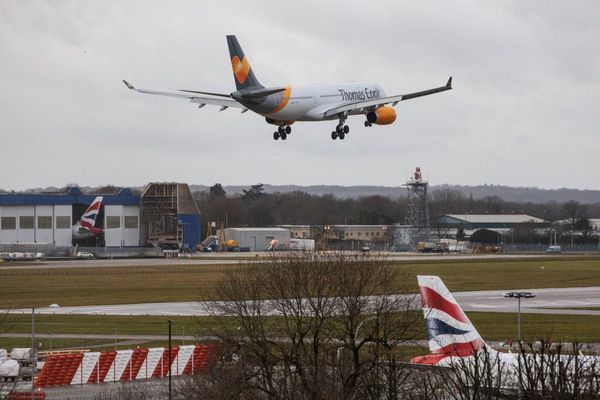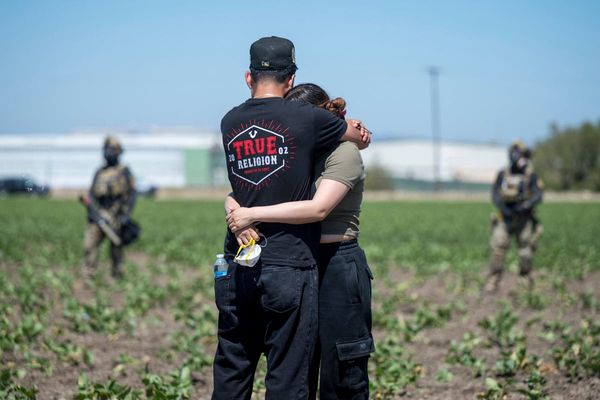Exports for human heart valve replacements are being impacted by Australia's worker shortage, with a Queensland company unable to fill all of its lifesaving orders.
A beef by-product, using the delicate tissue from the sac that sits around cows' hearts, is used in transcatheter aortic valve implantations for patients with severe heart disease.
Nolan Meats is one of several Australian businesses accredited to supply bovine pericardium tissue to medical companies in the United States.
"We fly that out every night and it goes across to the US and they make heart valves for transplant back into humans, so you're actually saving human lives by collecting that product," director Terry Nolan said.
"But some days you don't collect them, because you don't have the people to collect them."
Mr Nolan said his family's meatworks was operating with two-thirds of the workers it needed, and despite paying above award wages, their Gympie plant had 150 vacancies to fill.
"We process our cattle. We grow them with respect, process them with respect, and part of that respecting the beef is making sure that we're going to retrieve every possible item," he said.
To date, Nolan's restricted supply has not impacted the availability of artificial heart valves. There are many models, made by American companies.
Australian Meat Industry Council (AMIC) chief executive Patrick Hutchinson said that meat retailers, processors and smallgoods manufacturers were grappling with crippling worker shortages.
"If you look at our supply chain, from the moment the truck drives out of the saleyard, feedlot or farm, we are short approximately 10,000 people — right through to red meat and pork processing, cold storage, logistics, wholesaling, value-adding, supermarket preparation, butchers and smallgood manufacturing," Mr Hutchinson said.
"People think that we're out there ripping people off trying to sell Wagyu mince. This is not what we're about.
"We waste absolutely nothing. It's not only meat, but medical components, cosmetics, food ingredients, clothing and sustainable energy."
Mr Nolan said his family had worked hard to establish business in overseas markets that were often difficult to enter, and their ability to supply beef intestines, a delicacy in some Asian markets, had also been impacted.
"That's quite disheartening when you see valuable product just going to render because you don't have the people there to process it," he said.
Before the pandemic, Mr Nolan said he operated with 500 to 550 workers.
He said cow hide prices had also dropped from around $78 to $8-10 because of labour shortages around the world.
"When you don't have that revenue contribution, then of course meat prices have got to rise to cover for it.
"We don't want to see beef prices get any dearer. It'd be our desire to try to make beef prices cheaper for the consumer, to promote more consumption."
To improve its prospects of attracting and retaining workers, Nolan Meats has bought five houses near its meat processing plant, has an application to build accommodation before Gympie Council and is considering other housing options for its staff.
This week the business signed up to the Pacific Labour Mobility Scheme (PALM), to try to fill the vacancies.
Jobs crisis
"We've always been paying above award wages, and it doesn't really matter how much you pay, some people don't want to do this work," Mr Nolan said.
Mr Hutchinson said the industry was "struggling" to kill six million cattle a year and on the back of better seasons, cattle, sheep and goat numbers were expected to increase by up to 30 per cent over the next few years.
"It's a vicious circle. It will all be for naught if we don't have the capacity to process it. We need people, if we could wave a magic wand we'd have 10,000 more people," he said.
"We need skilled, semi-skilled and unskilled people now.
"What we want is an international workforce program that fills the gaps right along the supply chain and provides protections for workers, offers pathways to permanent residency which in turn provides positive benefits to regional communities."







